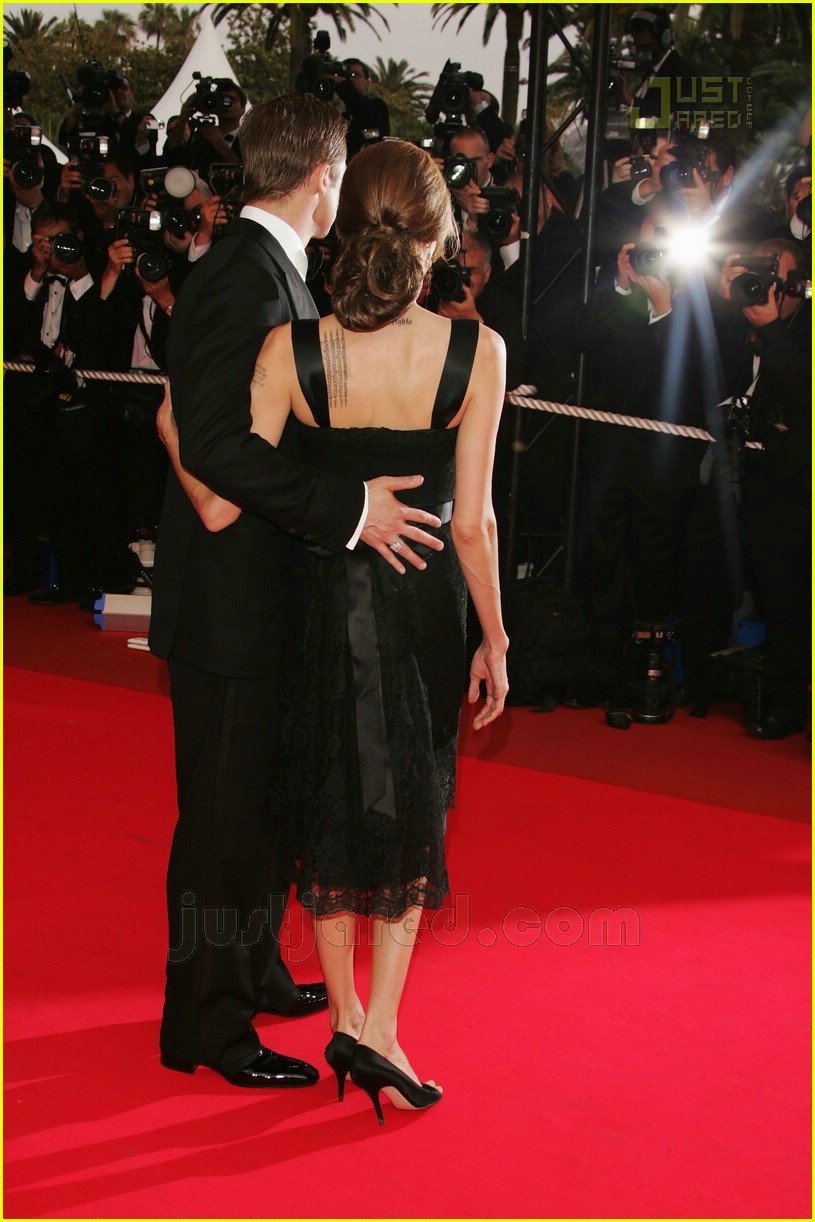
Yes, Mad Men is fallible. “Whatever.” Can you imagine Don Draper saying that? In that valley-girl passive-aggressive kind of way? I can’t either. And I’ve no idea if he ever has done, in that way, since the Madison Avenue drama first graced our TV screens back in 2007. But there are a handful of writer-linguist-historians who almost certainly do know, and who would argue persuasively whether or not that particular use of that particular word would have been prevalent in the dialogue of early- to mid-sixties ad men. In this particular case, whatever as a slightly dismissive interjection probably isn’t, in fact, a complete anachronism in ’60s American English. It was in the script* of a 1965 episode of Bewitched, a popular TV sit-com whose lead male character, Darrin Stephens, also worked in a Madison Avenue advertising agency. (Imagine Stephens and Draper sipping martinis together at the bar, or Betty and Samantha twitching their noses over coffee…)
As the curtain goes up tonight on season 6 of Mad Men, I feel as giddy as everyone else that my nearly year-long wait is finally over. But I also felt the need to do a round-up of the last five years of articles and blog-posts that have nit-picked mercilessly through the series’ scripts, reveling in the discovery of verbal flaws and prochronisms** in a TV show that is known for its fanatical attention to historical detail and its retro-accuracy. Perhaps it’s a perverse case of finding the exception that proves the rule, or just an obsessive compulsion to analyze and understand every last detail of something that is loved and admired.
The linguist Ben Zimmer, the former “On Language” columnist for the New York Times Magazine, leads the pack of Mad Men lingo-busters. Practically every article on the web examining the language of the series leads back to a writing or finding of Zimmer’s. Perhaps his most comprehensive and fascinating article on the subject, which he penned at the beginning of the fourth season in one of his last contributions to the New York Times Magazine, delved into the conscientiousness of the series’ scriptwriters and their fanatical attention to period detail. When it comes to a question of usage, Zimmer reported, the show’s research staff “consults the Oxford English Dictionary, slang guides and online databases to determine whether an expression is documented from the era and could have been plausibly uttered. ‘When in doubt,’ [series creator Matthew] Weiner said, ‘I don’t use it.’” For his blog Visual Thesaurus, Zimmer quoted something Matthew Weiner told him during his interview for the New York Times piece. “‘I never want it to be wrong. … Any anachronisms that do occur are mistakes.'” Zimmer revealed in the article: “[Weiner] said he still regrets allowing the character Joan to say “The medium is the message” in the first season, four years before Marshall McLuhan introduced the dictum in print.”
According to Benjamin Schmidt, another linguist-historian whose treatises on the language of Mad Men are almost as numerous as Don Draper’s conquests, the series’ writing staff also run usage queries through the Google Books database to ensure period accuracy, as he reported in his round-up article on Mad Men anachronisms in The Atlantic last year. Schmidt, an intellectual historian (in both senses of those words), has his own blog, Prochronisms, that looks at historical changes in language by analyzing period TV shows and movies, including Mad Men, using an algorithmic computer program that he himself devised. If you want to really geek out on the linguistic NGrams of Mad Men, read his blog post from April last year, when the series had just returned for its fifth season. Rather than identifying specific anachronistic vocabulary or expressions that hadn’t yet been coined or wouldn’t have been in usage in the 1960s, Schmidt takes a broader and more subtle look at patterns and frequencies of particular word combinations in that time setting. Take as an example the relative infrequency of the words “I need” in the ’60s: “To say ‘I need to’ so much is a surprisingly modern practice: books, television shows, and movies from the 1960s use it at least ten times less often, and many never use it all,” Schmidt explains in his Atlantic article.
In 2009, the linguist John McWhorter wrote a detailed and nuanced account in the New Republic of the series’ and the period’s language usage and patterns, focusing more on the socio-economic and contextual determiners of usage in terms of accent and articulation rather than on the usual subjects of vocabulary and idiom. “When Jennifer Crane gets up and takes her husband over the Drapers’ table saying “I want to” see how they are, crisply pronouncing want separately from to, it’s false,” McWhorter suggests. “That woman, even with her poise and aggressive social aspirations, would have said wanna just as we all do when we are not reading from text or laying down an answering machine message.”
These enlightening surveys highlight the very complex challenges faced by any scriptwriter aiming to replicate the language patterns of a bygone era. But interesting and erudite as they are, what we all really want to know is: where are the real bloopers? What words and expressions uttered by Mad Men‘s characters hadn’t yet been invented or entered the lexicon of the time? Considering the dialogue-heavy series has been on the air and under the microscope for five years, it’s impressive that only a handful of instances of actual verbal anachronisms (and even a few are arguable) have been identified; most were included in Vulture’s summary of Mad Men anachronisms published on Friday and are paraphrased below. (The lingo-buster in each case is in parentheses after the offending phrase.)
“The medium is the message.” (Various) Joan wouldn’t have known this phrase in 1960; it was a quote of media theorist Marshall McLuhan that was popularized in his 1964 treatise Understanding Media: The Extensions of Man.
“I’m in a very good place right now.” (McWhorter) Peggy said this in 1963, referring to her state of mind after smoking marijuana. “Its modern usage is metaphorical, having to do with spirit and development,” explains McWhorter, who says he first heard the phrase used by someone “of a rather New Age-y frame of mind” in 1994.
“1960, I am so over you.” (Zimmer) Joan said this in 1961, and Weiner has cited the 1948 Cole Porter song “So in Love” as proof of the viability of so being used as an intensifier at the time. Zimmer argues: “Scholars of semantics might disagree, seeing a nuance between Porter’s use of the adverb so, which quantifies the extent to which the character is in love, and the later Generation X-style spin on the word as an intensifier meaning ‘extremely’ or ‘completely’ without any comparison of relative degree.”
“I know you have to be on the same page as him.” (Zimmer) The OED traces the idiom “to be on the same page (as someone else)” to 1979. Its first known usage is in a New York Times sports article from that year about the NFL: ‘It takes a long time for everybody to get on the same page as far as the rules are concerned.’
“The window for this apology is closing.” (Zimmer) The OED suggests that this type of figurative window is an extension of the aeronautical term launch window. Though launch window dates to the mid-’60s, the first known use of window as in “window of opportunity” or vulnerability comes from a 1979 congressional hearing.
“Awwa!” (linguist Neal Whitman, also a Visual Thesaurus contributor) Whitman pointed to Ben Yagoda’s 2007 article for Slate on interjections identifying “Awwa!” as “a 21st-century innovation.”
~~~~~~~~~~~
Mad Men has also been proved guilty of allowing anachronistic fonts and books to trespass on its properties. On his blog, designer Mark Simonson has identified several futuristic fonts spotted on the show, and Andrew Hearst devotes an entire post on his blog to the series’ closing credits, which are set in an ’80s typeface. Zimmer noticed an ’80s edition of the Oxford English Dictionary sitting on Lane Pryce’s shelves, and brought it to the world’s attention on his Visual Thesaurus blog back in 2009. Finally, George W. Bush speechwriter and RedState.com founder Joshua S. Trevino spotted another as-yet-unwritten set of books over Betty’s shoulder in season three: the Griffin’s “The Corps” series was written in 1986, 1987, and 1990 respectively.
~~~~~~~~~~~
* from IMDB:
“Samantha: Mother, there’s something I have to tell you.
Endora: Good morning, Derwood.
Samantha: Darrin.
Endora: All right, whatever.”
** Prochronism: a particular type of anachronism, in which an event, person or object is placed earlier than it actually occurred or came into existence, eg. a verbal expression that had not yet been coined













